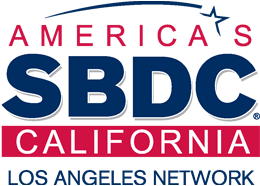Do your employees drive commercial motor vehicles (CMVs) as part of your business operations? If they do, it’s important that you and they know about stringent regulations that went into effect nationwide in early 2012, restricting the use of handheld cellular phones while driving.
The U.S. Department of Transportation ruling restricts CMV drivers from the following:
- Making a call while holding a cell phone
- Dialing a cell phone using more than one button
It would have banned reaching for a cell phone in an unsafe manner, but after pushback from a variety of industry associations, the DOT amended the rule to permit drivers to reach for a compliant mobile telephone (i.e., a hands-free phone), provided the device is within the driver's reach while he or she is in the normal seated position, with the seat belt fastened.
The rule also bans employers from requiring or allowing a CMV driver to use a handheld cell phone while operating a vehicle. CMV drivers must also be prepared and equipped with hands-free cell phone options before they drive a vehicle. The fine is steep – up to $2,750 for drivers and up to $11,000 for employers.
The ruling is based on research conducted by the DOT that put the odds of being involved in a safety-critical event are three times greater when the driver is reaching for an object than when the driver is not reaching for an object. If the driver is dialing a cell phone, the odds of being involved in a safety-critical event rise to six times greater than when the driver is not dialing a cell phone.
Other potential liabilities employers may face
Clearly, employers who have commercial motor vehicle drivers in their workforce need to be more aware than ever of potential liabilities they face for the actions of their employees behind the wheel. To boost awareness, the National Federation of Independent Business (NFIB) has put together a useful list of rules employers need to remember if they have employees who drive any vehicle for work:
- Business owners are generally responsible for injuries to third parties that are caused by employees acting within the scope of their employment – whether the employee is driving a company-owned vehicle or a personal vehicle (i.e. if an employer authorized the employee to do it or it was deemed necessary in order for the employee to carry out the job).
- Employers may be held liable for allowing unlicensed, incompetent or unqualified employees to drive a company car. Incompetency can include driving under the influence of alcohol or reckless driving.
The NFIB goes on to suggest that employers should be aware of federal laws that govern CMV safety and should encourage safe driving habits, including:
- Ban all employees from texting or talking on the phone while driving for work.
- Encourage employees to pull over before using a cell phone in a car.
- Limit or altogether end any work-related driving by employees with poor driving records.
- Update your company’s policy and any employee handbooks to reflect the most recent regulations in your area regarding distracted driving.
Related Resources





